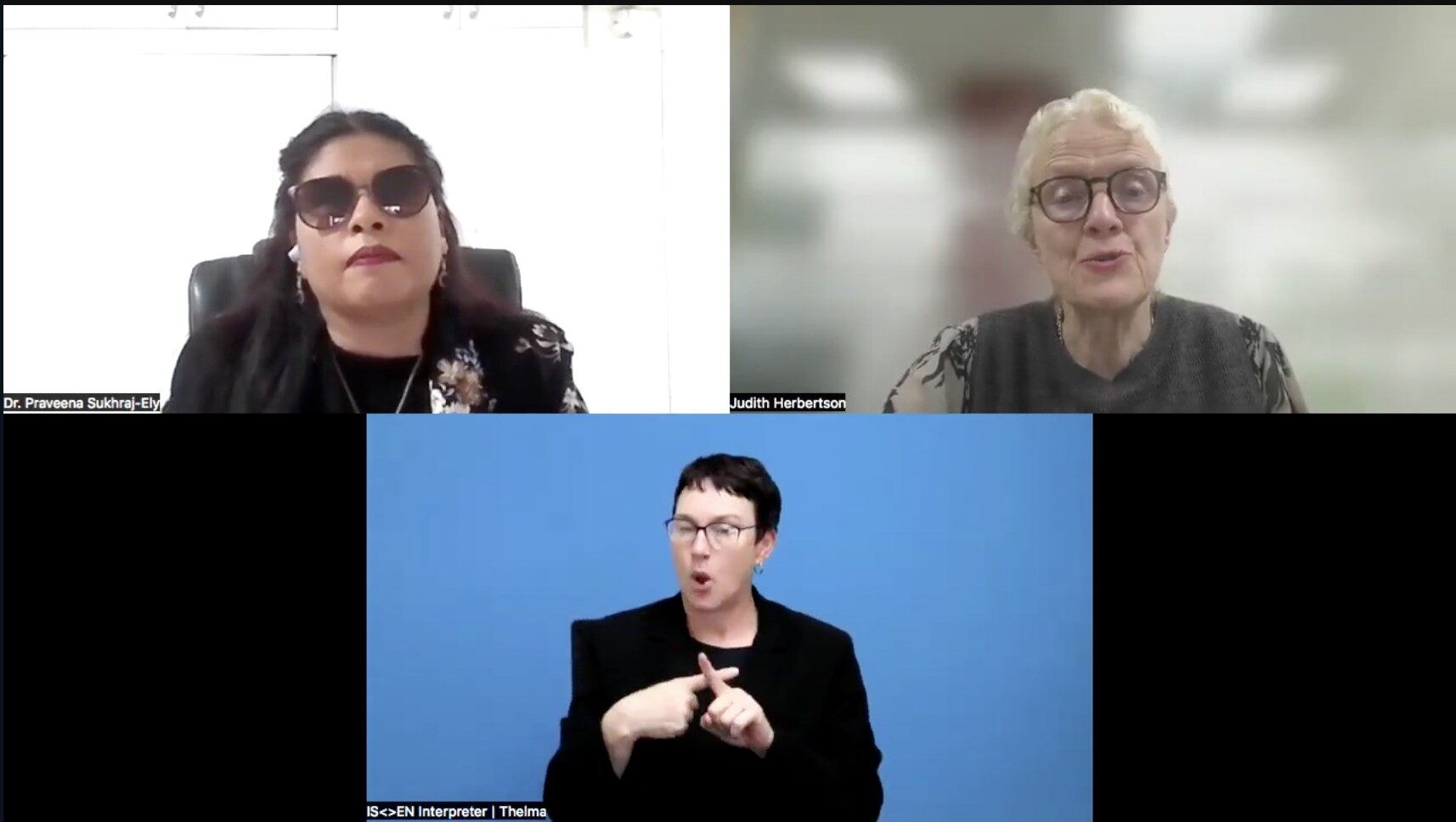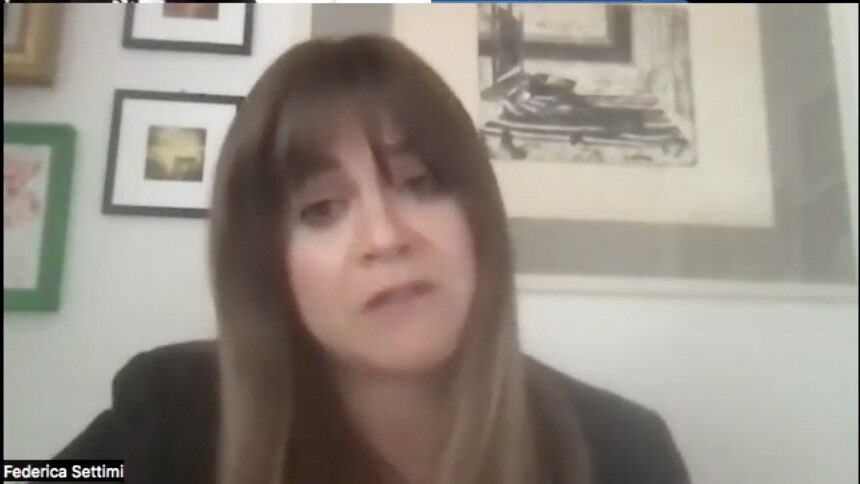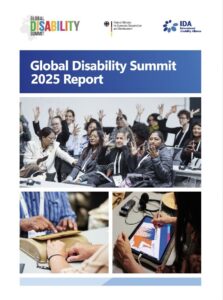Education continues to be one of the most powerful drivers of inclusion, yet for millions of learners with disabilities, access remains limited. The Global Disability Summit (GDS) 2025 renewed the call to make education systems equitable and accountable through the Amman–Berlin Declaration, which emphasized disability-inclusive international cooperation and partnerships with organizations of persons with disabilities (OPDs).
IDA dedicated the third webinar in a three-part series, to inclusive education co- hosted by the GDS Secretariat, the International Disability and Development Consortium (IDDC) and GLAD Co-chairs Inclusive Education Working Group, “Leveraging the Global Disability Summit 2025 Commitments to Advance Inclusive Education for Learners with Disabilities,” on 29 October 2025. Moderated by Dr. Praveena Sukhraj-Ely Chief Director of Governance and Compliance, Department of Women, Youth and Persons with Disabilities, South Africa and a member of IDA inclusive Education Task Team, the discussion showcased how commitments made at GDS 2025 are being translated into coordinated, systemic action.

The discussion outlined the pressing need for political leadership, systemic approaches and funding that prioritizes disability-inclusive policies and practices. It emphasized the importance of OPD involvement in translating commitments into locally relevant strategies that authentically reflect the diverse realities faced by learners with disabilities. By examining key commitments from global actors, the webinar explored how these initiatives can foster accountability and spark necessary reforms in education systems worldwide.
Opening the discussion, Jose Viera, Executive Director of IDA, spoke of education as “the tool that unlocks independence, autonomy, and inclusion.” Drawing from personal experience, he reflected on how inaccessible schools once limited his own opportunities, underscoring why inclusive education must be seen as a right rather than charity. He emphasized that efforts to include learners with disabilities must help to transform systems to be inclusive for all.
The GDS platform’s strength lies in its ability to unite governments, UN agencies, and OPDs around a shared agenda that transforms systems so that inclusion benefits all learners. Initiatives such as the forthcoming Leadership Council on Inclusive Education, co-led by IDA, UNICEF, and the UK government, are designed to bridge global frameworks with local realities.
Ms. Greta Gamberini, Manager of the GDS Secretariat, shared that 97 of the 820 new commitments made at GDS 2025, specifically addressed inclusive education, with an additional 79 commitments under other sectors referencing education, reflecting its cross-cutting importance. A closer look at the quality and joint ownership of commitments revealed a balance that mirrors the multi-level nature of education reform, with 14 commitments having local, 38 national, and 26 global implementation scopes. She also previewed the forthcoming post-Summit report, which will analyze the impact and coordination of these commitments.
The next monitoring cycle of GDS commitments, beginning in April 2026, will focus on qualitative learning instead of percentages achieved. It will address questions such as what is working, where barriers persist, and how commitments can be scaled. This emphasis on usability and transparency in reporting marks a significant step toward accountability and collective learning.
From commitment to implementation
The panel discussion on “Committing for Change and Next Steps” brought together stakeholders to share how they are operationalizing their GDS 2025 commitments to implement inclusive education initiatives. With presentations focusing on collaboration, localization, and the essential role of partnerships with OPDs, this charted a path forward for equitable educational opportunities for all children.
- UK Foreign, Commonwealth and Development Office, highlighted the establishment of a Leadership Council on Inclusive Education, co-led with UNICEF and IDA. They renewed pledges to:
i) ensure all education programmes are disability-inclusive by 2030
ii) collect and us disability-disaggregated data
iii) support inclusive education in emergencies using a twin-track approach
iv) use global platforms to promote disability rights.
They are organizing a policy conference in early 2026 on how to effectively mainstream the
inclusion of learners with disabilities in mainstream education.
- UNESCO’s Disability Strategy 2026–2029 is built around three pillars: strengthening institutional capacity, embedding disability inclusion across all sectors, and integrating intersectionality, particularly between gender and disability. Their immediate priorities are teacher training, accessible learning environments, and inclusive curricula.
- UNICEF holds inclusive education central to its Strategic Plan 2026-2029, which aims to reach 50 million additional learners with disabilities. UNICEF is committed to supporting at least 50 countries to strengthen education systems, enhance data collection using the Washington Group tools, and build partnerships with OPDs and youth with disabilities.
- Education Cannot Wait (ECW) now requires at least 5 percent of every programme budget to be allocated for disability-inclusive education. They promote a twin-track approach working to improve data and are prioitizing disability inclusion at the program and organizational level. ECW currently partners with OPDs to improve access to education in crisis and emergency contexts for its ongoing projects in Niger and Colombia.
- Federica Settimi, Co-Chair of the Inclusive Education Task Group at the International Disability and Development Consortium (IDDC), noted that nearly one-third of inclusive-education commitments at GDS 2025 came from civil society. She shared examples such as Sightsavers’ inclusive teacher-training modules in Cameroon and Senegal, Light for the World’s community engagement in Africa, and Inclusion International’s collaboration with ECW and IDA to strengthen education in emergencies.

A collective call to action
Mr. Siddo Nouhou Oumarou, from the Niger Federation of People with Disabilities, reminded participants that commitments mean little without local ownership. His organization’s collaboration with ECW and IDA has shown that capacity-building of OPDs is the foundation of sustainability. “If organizations of persons with disabilities are not strong,” he cautioned, “implementation will fail.” He called to ensure the participation of OPDs from the capital to the most remote of villages.
While global instability and funding pressures threaten progress, Ms. Diane Richler, IDA’s Special Advisor on Inclusive Education noted a shift from treating disability as a side issue to embedding it at the heart of education transformation. Participants echoed that inclusive education is no longer a separate agenda, but a systemic reform, rooted in leadership, financing, and partnership.
As Dr. Sukhraj-Ely concluded, “Let us ensure that the spirit of the Summit does not fade with its closing session. Our task is to translate commitments into action and strengthen accountability toward meaningful inclusion.” Moving forward, the task is to turn the commitments made at GDS 2025 into coordinated, monitored, and adequately funded implementation at every level, from global councils to local classrooms.
Watch the webinar here.


